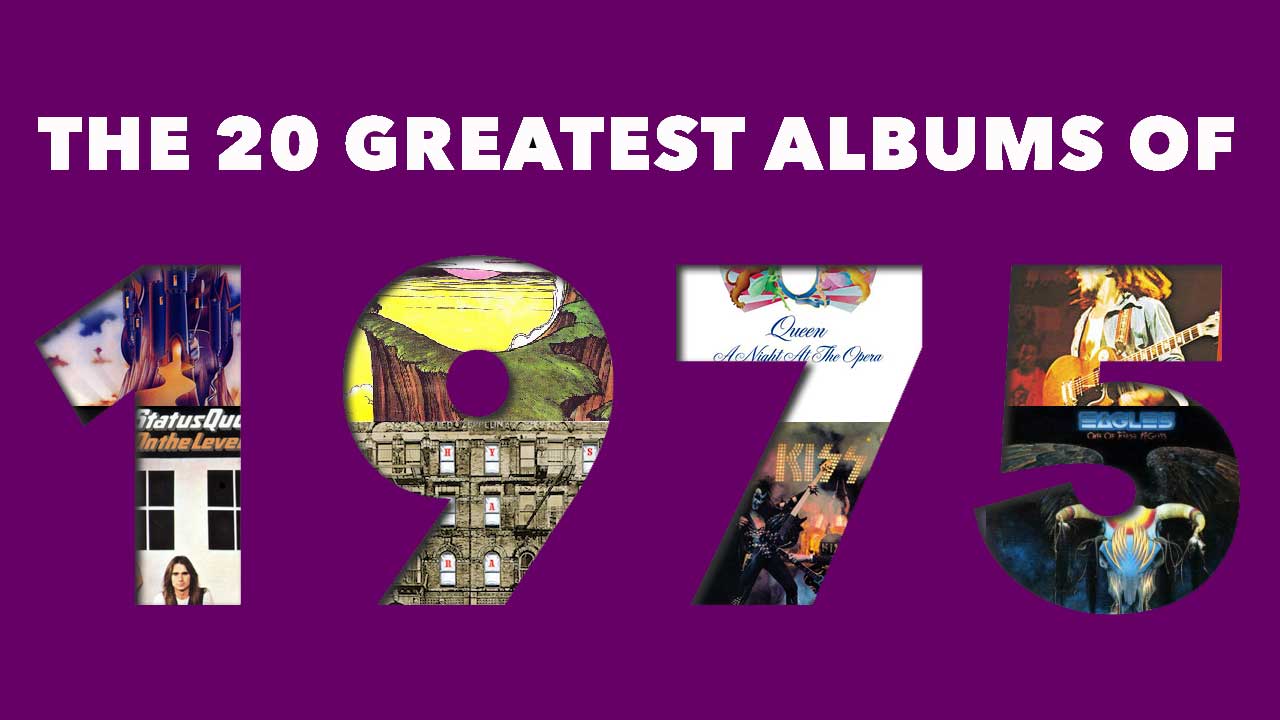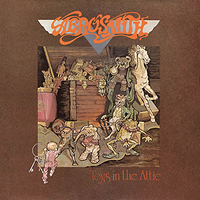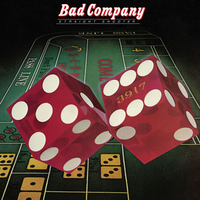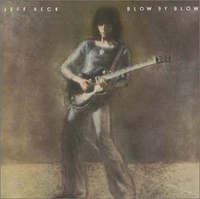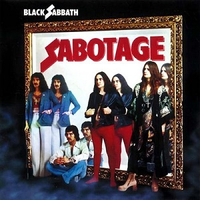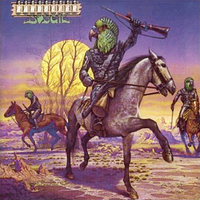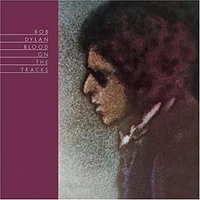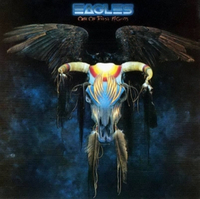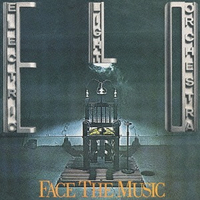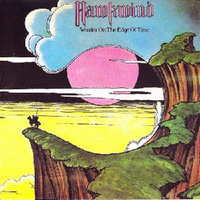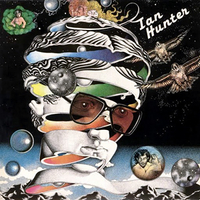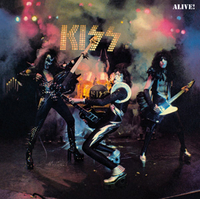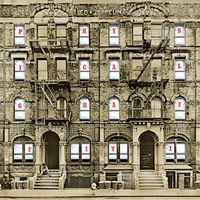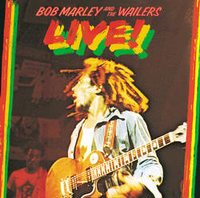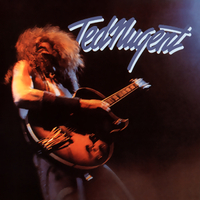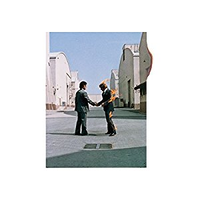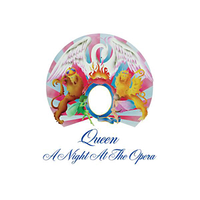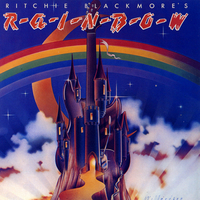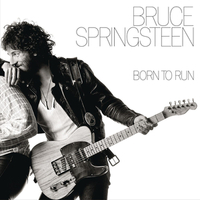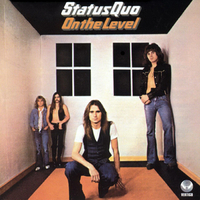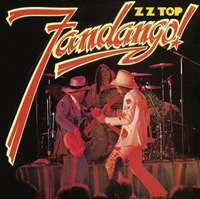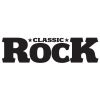In 1974 UK inflation rose by over 24%, while a Ford Mustang II could be yours for the princely sum of $4105.
Margaret Thatcher became leader of the UK Conservative party, while the Vietnam war came to an end and the video cassette was launched. In Spain, the dictator General Franco died, and the Cod War broke out between Britain and Iceland.
In music, Slade In Flame was released, and Alice Cooper fell off stage during a show in Vancouver, Canada, breaking six ribs. The first issue of Punk magazine was published, Elvis Presley ripped his pants during the biggest shown of his career – at the Pontiac Dome in Michigan – requiring him to vacate the stage, and Kiss played Cadillac High School's homecoming dance in Michigan.
These are the 20 best albums of 1975.

Having established themselves as a band to watch, Toys In The Attic marked the moment when Aerosmith took flight.
Tyler and Perry’s mythology was already snowballing by this point, and all the fun they were having on the tour bus filtered through on to the vinyl, from the strut of Walk This Way to the smut of Big Ten Inch Record.
Bad Company - Straight Shooter
Fans who feared Bad Company would reappear with a bold new musical direction were pleased to discover that Straight Shooter was nothing of the sort.
Like its predecessor, this was another rollicking ride through the band’s staple themes of gambling, whiskey and women. While not as successful as Bad Co, it’s arguably just as good.
Jeff Beck’s tendency to drift between genres had sometimes seen him described as dilettante, but here his free-roaming muse struck gold.
With George Martin on hand to rein in the guitarist’s excesses, Blow By Blow managed to swing between the raunchy (Freeway Jam) and chillingly romantic (Cause We’ve Ended As Lovers), and is a rare example of an instrumental album that breached the US Top 40.
Sabotage Creative differences were starting to kick in when Black Sabbath headed into London’s Morgan Studios to record the follow-up to Sabbath Bloody Sabbath.
While Tony Iommi’s growing tendency to experiment was evident (particularly on the choral arrangements of Supertzar) this was still a cracker of an album, with Symptom Of The Universe patenting thrash-metal and Am I Going Insane neatly capturing the madness of King Ozzy.
After four records that had built them a moderate profile, Budgie piled into the Rockfield Studios with a headful of ideas, and left with a self-produced album that managed to capture most of them.
Heavy, quirky and with an unexpected funk influence that reared its head on I Can’t See My Feelings, Bandolier was both the band’s finest hour and the start of their decline.
Bob Dylan - Blood On The Tracks
In a rare example of an ‘important’ album that’s accessible and easy to love, Blood On The Tracks was Bob Dylan’s most magnetic work of the decade.
Written as his marriage to Sara Lownds collapsed, it’s no surprise to find loneliness and confusion writ large on these tracks. Despite that, Dylan never wallows, and when the album plays out, it leaves the listener bruised but not broken.
Eagles’ fourth album again found them observing the cold, dark underbelly of Los Angeles. They didn’t like what they saw, with the lyrical themes broadly divided between the city’s greed and hedonism, but musically Eagles had rarely sounded sweeter.
The falsetto harmonies were soaring, and songs such as After The Thrill Is Gone were moments to place among the band’s best.
Electric Light Orchestra - Face The Music
Bang in the middle of the 1970s, ELO hit their creative stride with Face The Music, a record that twinned melodies worthy of the Beatles with the stellar guitar work of Jeff Lynne.
It was a good match – especially on tracks such as Fire On High and Evil Woman – and ushered in the band’s most successful spell.
Hawkwind - Warrior On The Edge Of Time
Space-rock connoisseurs will always have a place in their hearts for Warrior. An album that found Hawkwind on edgy and engaging form, its momentum was carried by the variety of ideas thrown into the mix, from the spoken-word poetry to the ballsy rock of Kings Of Speed.
Lemmy’s bass was also key, although it still didn’t stop him being fired after the album’s release.
When we handed Ian Hunter the award for Classic Songwriter at the Classic Rock Awards in 2005, our decision was heavily influenced by this solo debut, delivered just months after leaving Mott The Hoople.
Right from the opening salvo of Once Bitten Twice Shy, this was both a moving and rocking record, undoubtedly bolstered by the presence of Mick Ronson, but defined far more by the quality of its songwriting.
Somewhat misleadingly, Alive! wasn’t even a live show – the band had totally re-recorded it.
If you can overlook this technicality, however, you’ll find Kiss’s undeniable showmanship faithfully captured here, with explosions, monster drumming and, if you’ve got a decent imagination, the faint whiff of dry ice hanging in the air.
Led Zeppelin - Physical Graffiti
If any lingering thoughts remained that Led Zeppelin were merely the rock band of the decade, Physical Graffiti blew them away within the first few bars of Custard Pie.
Over the course of 15 tracks and 80 minutes, this album established Zep as the benchmark for everyone who followed. Managing to be inventive (with the Eastern-influenced Kashmir) while keeping one foot in the blues, Graffiti trampled everybody else underfoot in 1975.
Bob Marley & The Wailers - Live!
Recorded at London’s Lyceum in July 1975, the album that finally saw Marley break Britain was a call-to-arms whose attitude owed as much to rock as to reggae.
Flanked by a powerhouse band, Live! found Marley turning in both soulful (No Woman, No Cry) and defiant performances (Get Up, Stand Up) that he’d never top in the studio.
Straight out of the blocks, Ted Nugent struck gold with his eponymous solo debut – a record so powerful that it briefly justified the ego of its author.
With Derek St Holmes on guitar, Rob Grange on bass and Cliff Davies on drums, Nugent was flanked by a dream team, but he never let us forget who was calling the shots. From Stormtroopin’ to Motor City Madhouse, this is heavy metal as it was meant to be played.
Pink Floyd - Wish You Were Here
Not much fun to make, apparently, but Wish You Were Here was an instant classic when it arrived that September.
Between the bookends of Shine On You Crazy Diamond lay some of Pink Floyd’s most thrilling soundscapes thus far; music that was both futuristic and rooted in traditional values – endlessly open-minded but also bitingly cynical as demonstrated by Roger Waters’ snipe at the music industry on Have A Cigar.
It was Queen’s first UK chart-topper and included what would become the seventh best-selling single of all-time (and a headbanging classic) in the grandiose shape of Bohemian Rhapsody.
Facts and figures aside, A Night At The Opera was the album that cemented Queen’s position as a rock institution. As the main songwriter, Brian May was firing on all cylinders here, while Freddie Mercury mucked in with Seaside Rendezvous and even bassist John Deacon struck gold with You’re My Best Friend.
Rainbow - Ritchie Blackmore’s Rainbow
Having jumped ship from Deep Purple and recruited most of Elf as his band, Ritchie Blackmore headed into the Musicland Studios in Munich to prove he’d done the right thing.
Rainbow’s debut album included some great tracks – of which Man On The Silver Mountain was arguably the best – and even when the songwriting stuttered, Blackmore’s virtuoso soloing and Ronnie James Dio’s charismatic voicebox carried them through.
Bruce Springsteen - Born To Run
Poor sales of his early work meant the bulk of Bruce Springsteen’s third album was written as he toured the US playing marathon three-hour sets.
Perhaps that’s why Born To Run sounds so hungry. Lyrically, it follows the stock themes of driving out of ‘nowhere’ towns while the ‘wind blows back your hair’ (Thunder Road), but it’s all done with such honesty and charm that resistance is futile.
A nice little earner for Status Quo, On The Level also spawned the band’s only chart-topping UK single in Down Down, and clung to the top of the UK album chart for a fortnight.
It’s a great release too, with the band thundering through tracks such as Little Lady with a grit and enthusiasm sometimes lacking from later albums.
ZZ Top were a huge live draw in the States, prompting the release of Fandango!. Side A was recorded at The Warehouse in New Orleans, and Side B was laid down in the studio.
The latter are fantastic, but it’s the live grooves that remind you where this band functioned best.
- The 20 best rock albums of 1970
- The 20 best rock albums of 1971
- The 20 best rock albums of 1972
- The 20 best rock albums of 1973
- The 20 best rock albums of 1974
- The 20 best rock albums of 1976
- The 20 best rock albums of 1977
- The 20 best rock albums of 1978
Classic Rock Newsletter
Sign up below to get the latest from Classic Rock, plus exclusive special offers, direct to your inbox!
